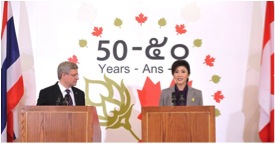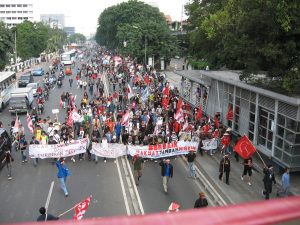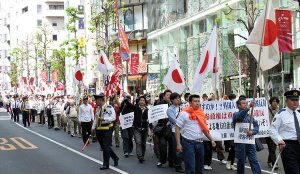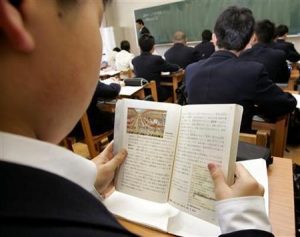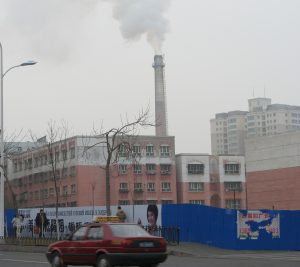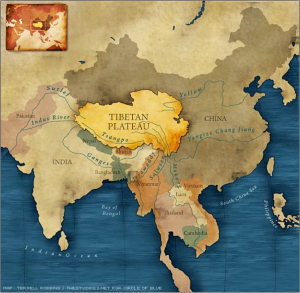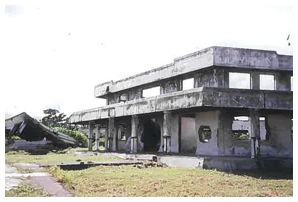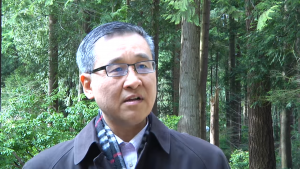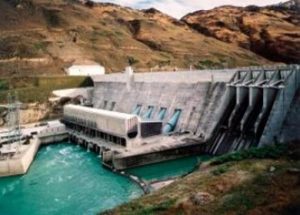Exporting “Tough on Crime” Policy to Thailand: Harper’s Recent Visit
Memo #148 – Human smuggling and terrorism – not trade – played centre stage in Prime Minister Stephen Harper’s visit to Thailand in March. Although the Thai government was eager to solicit more interest in trade during a visit that marked the 50th anniversary of Canada-Thailand relations, it was left with $7 million (CDN) for an anti-crime program and an “exploratory” talk on free trade.
Alzheimer’s Disease Research in China and Canada (Video Interview with Dr. Weihong Song)
Memo #147 – Alzheimer’s disease affects ten per cent of people over 65 years old, and 50 per cent of people over 85. Both China and Canada are experiencing a rapidly aging population. In China, there are 178 million people over 60.
Explosive Fuel Politics in Indonesia
Memo #146 – Indonesian cities have recently witnessed a wave of protests as citizens voiced complaints against a planned fuel price hike. On March 30, 2012, students in Jakarta stormed the legislature and clashed with police. Legislators have carefully adjusted their positions to distance themselves from the hated fuel price hike.
Japan’s Failure to Enfranchise its Permanent Resident Foreigners
Memo #145 – Over 500,000 Koreans, many who were born and raised in Japan, have become disheartened since Japan’s historic change of government in 2009. In March 2010, the Japanese government failed to submit the long-awaited bill to give voting rights to permanent resident foreigners. Enfranchisement is a major political issue in Japan and the political rights of permanent resident foreigners are ignored.
Japanese History Textbook Controversies: The Missing Link
Memo #144 – History textbook controversies in Japan (教科書問題) focus on “facts” about particular events and question specific phrasing and numbers. In the past, Chinese and South Korean governments have charged that Japanese government-screened history textbooks allegedly trivialized and/or justified past atrocities.
Relocating China’s Pollutive Industries: a “Double Pollution” Problem
Memo #143 – Newspaper headlines in China have been speckled with the painful legacies of industrial land contamination. The term “brownfield” is used by post-industrial countries to describe land contaminated by previous industrial use. It is increasingly applied to cases in China. But the context is different, as China still experiences rapid growth. This separates China’s “brownfield” dynamic (constant land use change), from post-industrial countries’ static issues of derelict land.
Water, Scarcity, and Tibetan Plateau Frontiers
Memo #142 Theme Editors: Tashi Tsering and Jack Hayes Freshwater (in)security is quickly rising as a critical global challenge. Today, March 22, is World Water Day. The focus is freshwater and measures for conservation and management. Last fall, Asia Pacific Memo published four Memos as part of its Theme, “Water, Scarcity, and Tibetan Plateau Frontiers.” […]
Indonesia’s Draft Law Exacerbates Religious and Ethnic Tensions
Memo #141 – Conflicts between religious and ethnic communities in Indonesia last year raised fears that communal violence might again erupt across the archipelago, as it did from 1999 to 2001. Disputes between Muslims and Christians led to the burning of several churches, the bombing of a church in Central Java, and the displacement of 7,000 people in Maluku.
China: Energy, Environment, and Growth – Options for Canada (Video Interview with Dr. Wenran Jiang)
Memo 140 – China’s environmental issues need to be understood in a global rather than a narrowly national context. While China as a nation is the largest emitter of carbon dioxide on a per capita basis Chinese citizens produce far fewer emissions than citizens in advanced industrial economies. Further a large proportion of these emissions result from export industries producing goods for export abroad.
Will “Nepal Investment Year” Solve its Hydropower Puzzle?
Memo #139 – By some estimates Nepal has the potential to generate 42,000 megawatts (MW) of hydroelectricity per annum. In an effort to attract capital, Nepal’s Prime Minister Baburam Bhattarai proclaimed 2012 as “Nepal Investment Year.” The aim is to attract over $6 billion (USD) for key sectors including hydropower. Bhattarai also signed a Bilateral Investment Promotion and Protection Agreement (BIPPA) with India.
